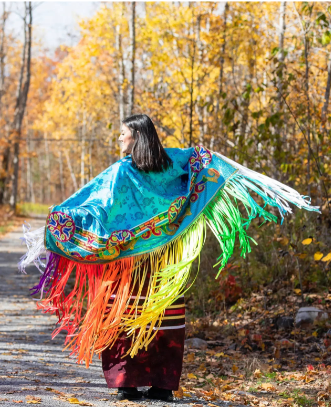Unit 7: Supporting Indigenous Communities
Recovery Homes and Indigenous Communities
- Historical Trauma
- Generational emotional damage
- Current Climate
- Unregulated/fraudulent sober living homes targeting Native Americans
- AHCCCS fraud reporting
- Resources for residents
Generational trauma, also known as intergenerational trauma, refers to the psychological effects that the trauma experienced by one generation can have on subsequent generations. For Native Americans, this concept is particularly relevant due to the historical and ongoing traumas that have been experienced by many Native communities. These traumas include forced removal from ancestral lands, genocide, cultural suppression, forced assimilation through institutions like boarding schools, and systemic discrimination.
The trauma is not just about the historical events themselves, but also about the enduring effects of these events on the community’s health, well-being, and social structures. It can manifest in various ways, including psychological issues such as depression or anxiety, substance abuse, and the perpetuation of violence and abuse within communities. The effects can also be observed in the form of economic and health disparities when compared to other populations.
Generational trauma is passed down through behavioral patterns within families and communities, as well as through biological mechanisms, where the stress responses can actually alter gene expression in a way that affects the next generation. This means that even descendants who have not directly experienced the original trauma may still exhibit signs of trauma-related stress.
Addressing generational trauma among Native Americans involves acknowledging the historical context of these experiences, providing mental health support, promoting cultural healing practices, and ensuring that policies and actions do not continue to perpetuate harm. It’s a complex issue that requires a multifaceted approach, including community-led initiatives, culturally sensitive healthcare, and systemic changes to address the root causes of inequality and discrimination.
Recovery Homes and Indigenous Communities
(Trauma Informed Care)
Activity: Please watch this brief video to better understand historical trauma and how it is experienced.
Recovery Homes and Indigenous Communities
- Cultural Considerations
- Several components that can add to lasting recovery.
- For example, home administrators can create space for the observation of cultural practices.
- Several components that can add to lasting recovery.
- Community and Family Support
- Create ways to encourage connection to community and family
- Advocacy and Empowerment
- Recovery homes can step up to report and address disparity.

Key Takeaways
Supporting Indigenous Communities
- Understand historical trauma
- Create ways to facilitate connection and/or foster a safe space for communal care and healing for this community
RHAAZ Course Curriculum
Sources:

